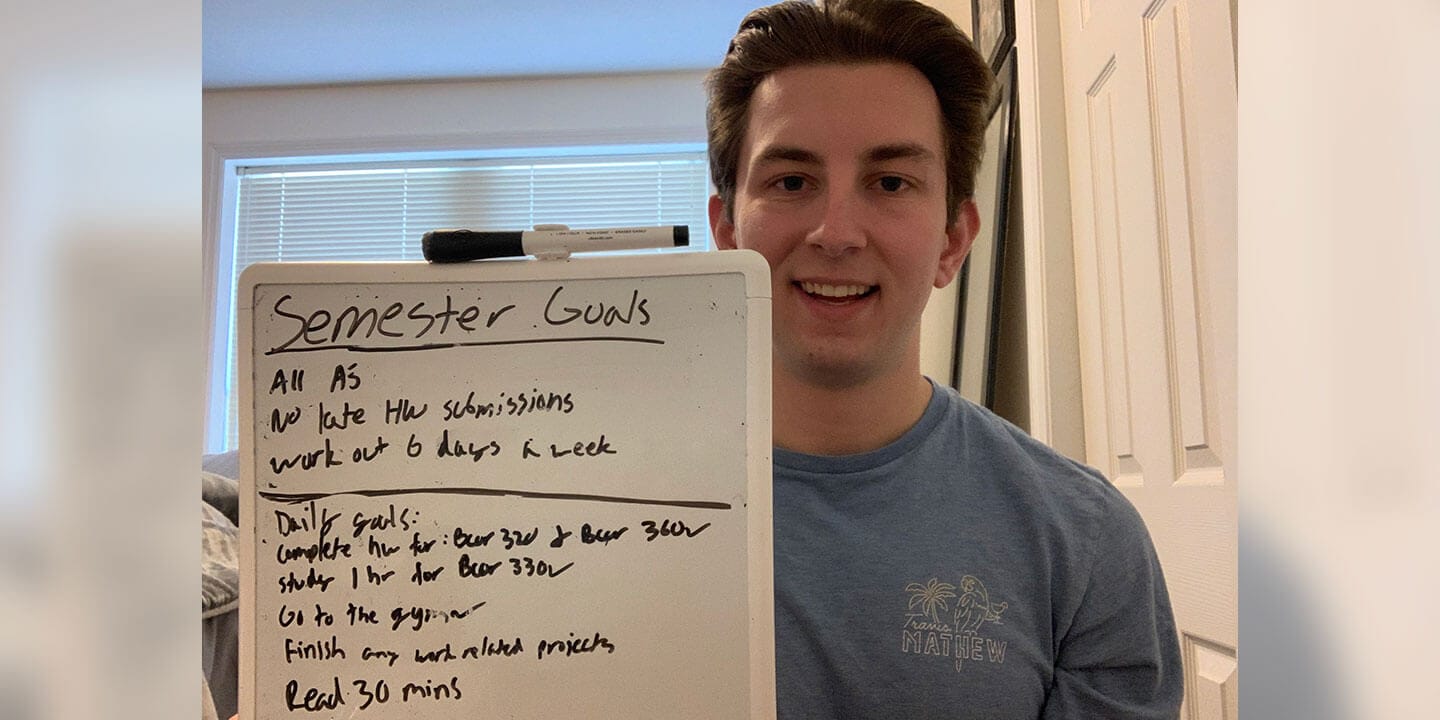
Use Goals and Rewards to Achieve Academic Success
At the beginning of every semester most students are very motivated to achieve their academic goals – whether that be to achieve straight A's or just passing all their classes. We get to start fresh at the beginning of the semester with the belief that this will be our best semester. Typically, the first couple weeks go by smoothly but when tests start coming up and work piles up, things can go downhill. We may start settling and not working as hard as we did at the start of the semester, losing the vision of our goals. Here are a few tips I use to help me stay motivated throughout the semester.
Write Out Big Goals
The first thing I do at the beginning of the semester is write down my big goals for the semester on my whiteboard. Some of the goals I may include are:
- more A’s than B’s
- no C’s or worse
- complete all homework assignments on time
…or whatever else I may be trying to focus on. By writing these goals on my white board I see them every day and remind myself of what I am trying to accomplish. If I have fallen behind in one of the goals, I have set for myself I know I have to lock in more. Whereas if I am on pace to meet my goal, I know that what I am doing is working and to keep doing what I am doing.
Write Out Smaller Goals Through the Week
Next, I also have smaller goals written down. These can be daily or weekly goals that help you reach your big main goals. I will also write these down on my whiteboard so that I can see what I have to do and get the satisfaction of crossing it off my list. An example of some of the smaller goals I may set for myself are:
- go to all my classes
- complete my upcoming homework assignments
- study for an hour
Breaking down my main big goals into smaller goals makes it seem easier and motivates me to do my work because I know that it will directly affect my big goals.
Reward Yourself Whenever You Accomplish Something
One of the great ways to stay motivated is by giving yourself something to look forward to. It can be something as small and simple like you get the rest of the day to just relax and do what you want or something bigger like buying new clothes or going on a little trip. Last semester I tried this and ended up completing my goals because I wanted a couple of new sweatshirts. For each goal I completed, I allowed myself to buy a sweatshirt. It was the first time I was engaged and motivated through a whole academic semester. Giving yourself something to work for keeps you engaged with your schoolwork, and you’ll learn a lot more.
Remember the Big Picture
Whenever I am dreading to do an assignment, I will look at the big picture and examine the path that leads me to where I want to be. All the little assignments, projects, and tests matter and are just little steps leading me to my goals. This visualization helps keep me motivated because I want to accomplish my larger goals and I will get my work done to insure the best future for myself.
A certain amount of self-management is needed to achieve academic success. Whether it be long term and short-term goal setting, establishing rewards for yourself, or examining the big picture, figure out what motivates you to complete your work and implement it early in the semester before you get off track.
Do you have a compelling story or student success tips you’d like to see published on the Pearson Students blog? If you are a college student and interested in writing for us – click here to pitch your idea and get started!







